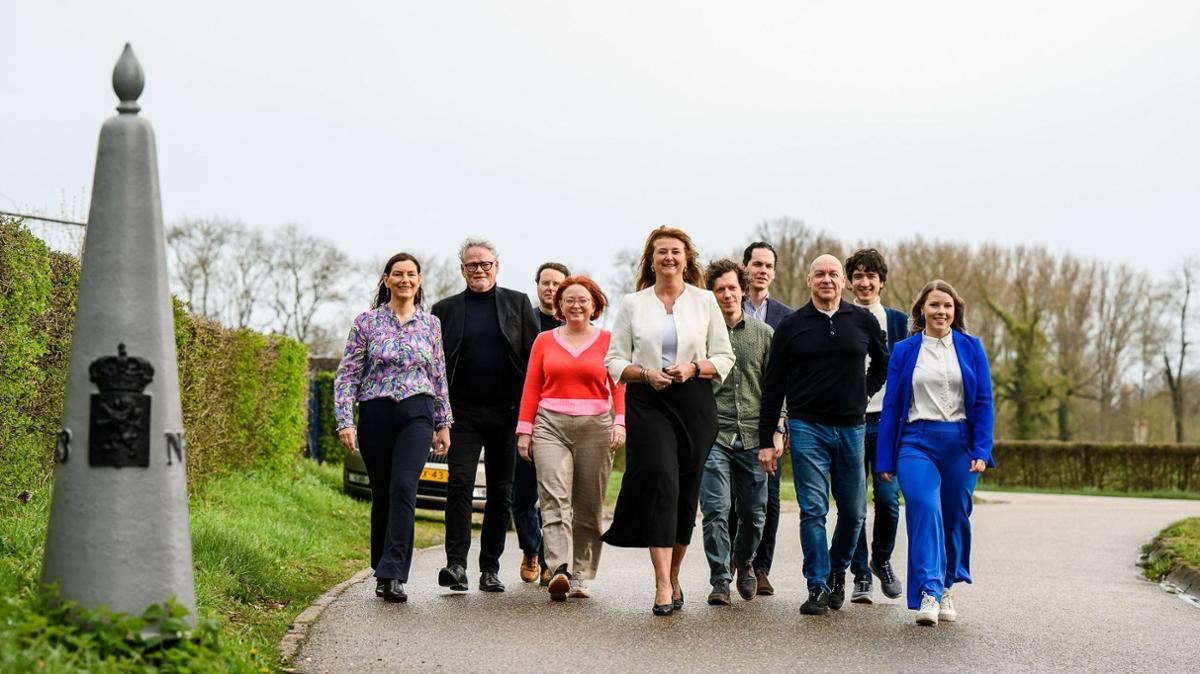 |
| Foreword |
During the last couple of weeks the first provincial coalition agreements were presented. Among which also the three border provinces of Zeeland, Limburg and Gelderland. As already announced in the Comment on the results of the Provincial Elections, ITEM will analyse and reflect on the coali tion agreements. The reflections on these first three coalition agreements will follow next week, where ITEM addresses possible border effects and chances. This will be sent by a separate mailing. In the provincial plans the concept of ‘Brede Welvaart’ (broad prosperity) is a common theme that has been put forward multiple times. Indeed, recently an important publication appeared (‘Elke region telt!’), addressing the need for better policies that take into account the regional perspectives and development. Here, as ITEM would argue, Horizontal Integration should take place in a multi-level fashion – that is, national, regional and the cross-border level connected in a joint effort. tion agreements. The reflections on these first three coalition agreements will follow next week, where ITEM addresses possible border effects and chances. This will be sent by a separate mailing. In the provincial plans the concept of ‘Brede Welvaart’ (broad prosperity) is a common theme that has been put forward multiple times. Indeed, recently an important publication appeared (‘Elke region telt!’), addressing the need for better policies that take into account the regional perspectives and development. Here, as ITEM would argue, Horizontal Integration should take place in a multi-level fashion – that is, national, regional and the cross-border level connected in a joint effort.
While ‘Brede Welvaart’ is a rather Dutch concept, a common denominator can be found in the overarching Sustainable Development Goals. Yet, while data is available on a certain regional level, the border remains the limiting factor. At this moment current indicators and practices do not take into account the cross-border level, nor the provincial plans address this adequately. It is therefore that ITEM has selected the topic of Broad prosperity from a cross-border perspective as dossier for the new Cross-Border Impact Assessment. Another important theme from the provincial coalition agreements is infrastructure. From the Einstein Telescope to cross-border public transport to corridors for hydrogen, all require some cross-border preconditions. This will also be addressed in ITEM’s Cross-Border Impact Assessment. The topic of cross-border infrastructure and mobility in North-West Europe will also be central during the HNP/ITEM side-event on 27 September as part of the European Week of the Cities and Regions, in prelude to the Annual Conference on the 17th of November in The Hague. The selected dossiers of the ITEM Cross-Border Impact Assessment 2023 are announced below. The topics again stress the importance of a border impact assessment, as ITEM has also developed for the Dutch Ministry of Interior. Speaking of which, the departmental workshops and trainings by ITEM for the ministries in The Hague also have started. Next to analysing border effects, we so aim also to contribute to the prevention of border obstacles. And speaking of that, the new bilateral tax treaty between Belgium and the Netherlands took up some of those recommendations of ITEM to solve border obstacles, and during the B-solution workshop at the Benelux we tried to solve some more.
Prof. Dr. Anouk Bollen
Director ITEM
|
|
|
|
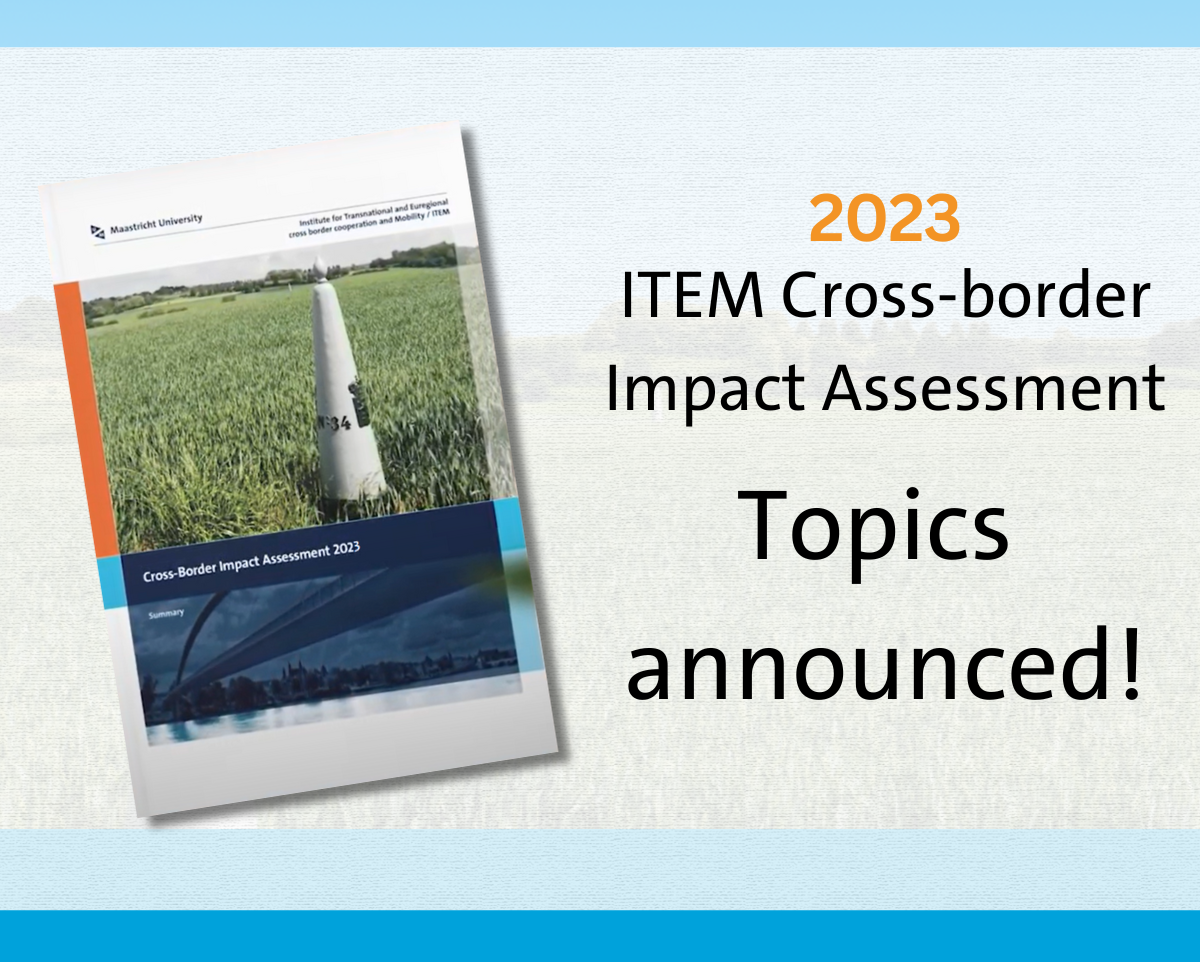 |
| Cross-Border Impact Assessment 2023: Topics announced |
The topics for the ITEM’s annual Cross-Border Impact Assessment 2023 have been selected and the research phase is now well underway. The final reports will be presented at the ITEM Annual Conference, November 17th 2023.
Discover the Cross-Border Impact Assessment 2023: Uncover the pressing issues and their implications for cross-border regions in the European Union. ITEM's annual report highlights key topics that shape legislation and policy, affecting the lives of people living and working across borders. From the impact of halting international student recruitment to the challenges of cross-border infrastructure projects, each issue brings unique insights into removing barriers and fostering socio-economic development. Delve into the fascinating world of measuring broad prosperity indicators from a cross-border perspective and explore the potential consequences of concentrating acute care in the Netherlands on border regions. Uncover the complexities of eligibility criteria for child allowances and the effects on low-income families. Discover how legislation and policies shape public transport in cross-border regions and the strategies to enhance mobility. Finally, examine the cross-border effects of cannabis legalization and its implications for neighboring regions.
This years' topics are;
- Impact ‘Stop recruiting international students’
- Euregional Barometer: broad prosperity indicators from a cross-border perspective
- Supplementary child allowance (Kinderzuschlag, DE-Kindgebonden budget, NL): Cross-border worker between shore and ship?
- Cross-border impact of concentration of acute care in the Netherlands
- Impact of legislation and policies on Public transport in cross-border regions (PREMIUM-project)
- Cross-border Infrastructure projects: What instruments are needed to make the Einsteintelescoop, Hydrogen infrastructure and other big cross-border projects possible?
- Cross-border effects of legalisation of cannabis
|
|
|
|
|
|
| Guest column |
In Europe, as a member of the European Parliament, a Senator and chairman of the European Affairs Committee, regulation on pensions has had and continues to have my special attention. There are European rules that pension institutions in Europe have to comply with.
 There are rules for cross-border activities of pension institutions. There are also European rules for the risk management and governance of pension funds. There are separate rules for cross-border value transfer, the so-called portability of pension rights accrued in another Member State. By setting European rules on the supervision of pension institutions, Europe wants to stimulate so-called second-pillar provision in Europe. Incidentally, the rules on supervision and funding are open standards that must be supervised by the member states themselves.
The pension system in the Netherlands is different from what is common in Europe. Most countries have a pay-as-you-go system similar to the pay-as-you-go system for our AOW. We have saved for pensions to be less dependent on the National Budget and, of course, a declining population that increases the pension burden per citizen.
But even in our capital-backed system, there are uncertainties. The risk of living longer and also the interest rate and stock market results make it clear that our system is not infallible.
So change and optimisation was needed, which took shape in the Future of Pensions Act. Consideration of this law kept minds very busy. For the spokesperson on this dossier in the Senate, the last month was far from quiet.
Those in favour and, in particular, the many opponents really pulled out all the stops to ensure that the pensions project, a product of the polder negotiated for years, was shipwrecked within sight of the port.
But, on 30 May, after the necessary commitments on adjustments, the major overhaul of the second-pillar pension system was nevertheless decided positively by a very large majority. In the old system, it was simple, you collectively save for a pension entitlement, th
at saving is done with an equal contribution for each participant. To maintain the entitlements of participants in a fund also in the future, calculation rules were drawn up. The strict rules in the nFtK provided a lot of security, but also large buffers that could not be paid out. The consequence of hoarding and not being allowed to adjust to increases in wealth is that many pensioners have suffered a sharp decline in disposable income.
An adjustment of the system was needed, not only to be able to pay out earlier in case of a rise in returns, with the consequence, incidentally, that moving with the economy also means that pensions, in terms of accrual, can also go down. Incidentally, to prevent an economic downturn also having an immediate effect on pensioners' income, they can be compensated by supplements from the mandatory solidarity fund.
Another reason to change the system is that in the current system, young and old pay the same premium. The so-called average premium. A young person's premium can pay off longer, the opposite is true for older workers. That problem used to be overcome because young majority became old in the same system. That is no longer the case as people change jobs or become self-employed. In the new system, the average contribution has been abolished.
The WTP as we now call the law is now a totally different concept due to the deliberations in the polder. Minister Koolmees still stood for; either a personal pot or a risk-sharing scheme.
It is now the Solidarity Premium Scheme that has been chosen. A scheme where risks can be shared when necessary, for instance to guarantee an income in case of the loss of a parent or partner.
There are many misunderstandings about the distribution of the 1,400 billion pot by which is not meant a personal money pot, but it is the entitlements of each participant that are divided into small pots. This is what we call the transition. It follows a plan that each fund has to discuss with members, pensioners and their representatives. The plan is then submitted to the Dutch Bank for approval.
Will surely everything go well? No risks are always there. IT has to ensure that data of some 10 million stakeholders is in order, and sufficient manpower must also be available.
For the transition, the initial deadline was too short. This is now being adjusted and also, with the appointment of a government commissioner to identify where things are pinching, an intervention throughout the transition process will be possible, improving feasibility.
There is a lot of work for the funds to do to ensure successful implementation.
More importantly, members, surviving relatives and pensioners must be adequately informed. That objective information has been lacking so far.
Ria Oomen-Ruijten
Former Member of the European Parliament and former Member of the Senate
|
|
|
|
|
|
 |
| B-Solutions Workshop “Solving obstacles to cross-border teleworking” |
On 14 June 2023 the B-Solutions workshop, organized by ITEM, GIP Aachen/Eurode and AEBR, in cooperation with the Benelux Union took place in the context of a B-Solutions project funded by DG REGIO. With a focus on the border regions between Germany, the Netherlands and Belgium, the workshop explored solutions on the issue of teleworking, cross-border working, taxation and social insurance issues, explored how these can be resolved within emerging frameworks at EU and Member State Levels, and discussed the role of key organisations in implementing the recommendations of this B-Solutions case.
As regards social security, a solution has been found in the form of the Framework Agreement that can be considered a best practice how member states can cooperate across borders. All agreed that taxation should follow in a certain way. In the development of future cross-border teleworking arrangements, the thrive should be to establish as much as harmonisation as possible regarding definitions and thresholds. Also more work should be put into simplicity, making tax declarations as easier in cross-border situations. You can find more information and a brief reflection on our website. |
|
|
|
|
|
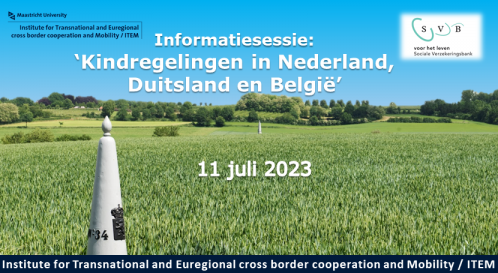 |
| ITEM/SVB Informationsession |
On 11 July 2023, the Institute for Transnational and Euregional cross-border cooperation and Mobility / ITEM and Bureau for Belgian and German Affairs of the Social Insurance Bank (SVB) will organise an information session entitled "Child schemes in the Netherlands, Germany and Belgium".
More and more people are living and working in two or more countries. This has various consequences. Which parent gets child benefit in which country? And what schemes do the Netherlands, Germany and Belgium have in addition to child benefit? What are parents and carers entitled to and how do the different child schemes work? These and other questions will be answered by the Bureaus for Belgian and German Affairs during this session. You will learn more about the structure, level and concurrence of the child schemes from the Netherlands, Germany and Belgium.
Please register before 3 July and note that this event is in Dutch.
|
|
|
|
|
|
 |
| #EURegionsWeek 2023: Don’t miss the ITEM/HNP Side Event on 27 September! |
What is the impact of increased sustainability of the infrastructure and mobility on European level and how does it affect cross-border regions? We warmly invite you to attend our #EURegionsWeek Side Event, jointly organised with the House of the Dutch Provinces (HNP).
Event
What is the impact of increased sustainability of the infrastructure and mobility on European level and how does it affect cross-border regions? What do the new European frameworks mean for cross border rail transport, pipe transports and inland shipping? What implication does it specifically have for hubs or logistics barriers?
The event will consist of three panels:
- What lessons can we learn from existing cross-border projects on sustainable transport?
- How can we address issues that arise with regard to rail, pipelines, harbours and inland shipping?
- How do we speed-up the transition towards sustainability within transportation through cross-border cooperation between the Netherlands, Belgium and Germany?
Speakers include representatives from the European Commission, Members of the European Parliament, public stakeholders, regional and local politicians, business representatives and scientists. We will announce a more detailed programme in due course.
Register
The event will take place on Sept. 27, 2023 from 13.00-15.00 h. via live stream. The language of the event will be English. Please register here for the event. We look forward to seeing you!
#EURegionsWeek
The HNP and ITEM are hosting their third joint Side Event in 2023 during #EURegionsWeek, the annual European Week for Regions and Cities in Brussels. Previous events focused on cross-border energy cooperation and the impact of COVID-19 on cross-border workers.
In 2023, the 21st edition of #EURegionsWeek will take place from Oct. 9 to 12. The week is specifically dedicated to European regions and regional policy. During this week, representatives of regions and cities from all over Europe will gather in Brussels, including politicians, administrators, experts and academics. Side Events associated with #EURegionsWeek will be organised from September 2023 through November 2023 and can be found on the #EURegionsWeek website starting this summer. |
|
|
|
|
|
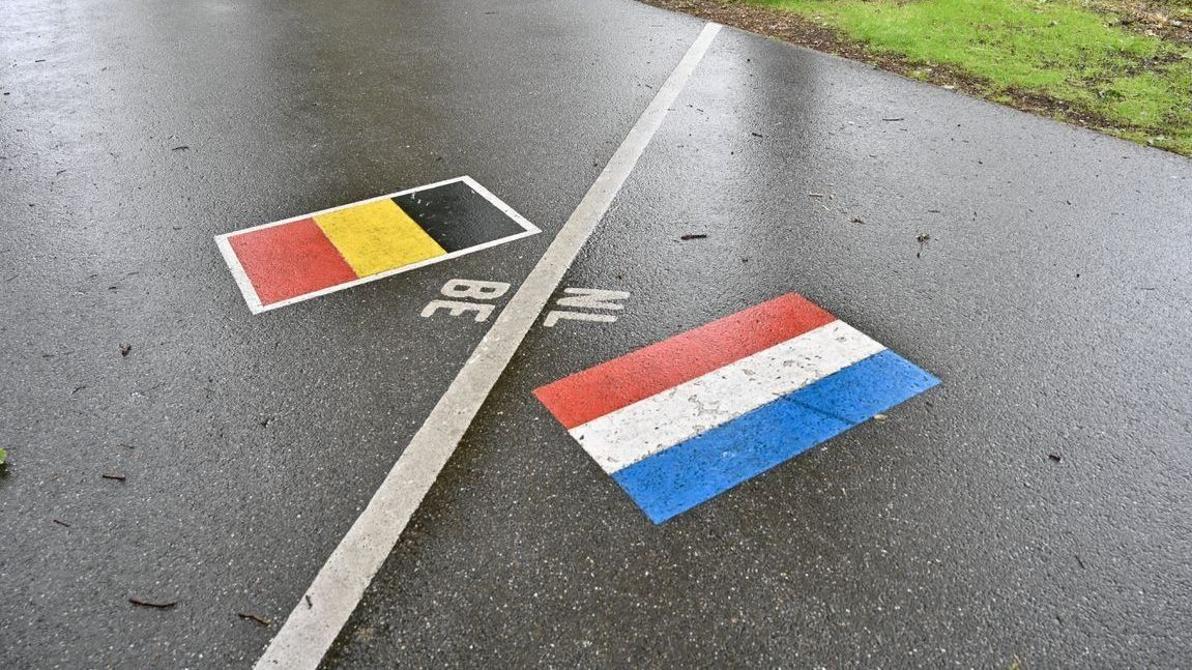 |
| New Netherlands-Belgium tax treaty signed: some bottlenecks removed |
After years of negotiations, the new tax treaty between the Netherlands and Belgium was signed on 21 June 2023 by State Secretary Van Rij, Belgian Finance Minister Van Peteghem and Flemish Finance Minister Van Diependaele. On 23 June, the text of the new treaty was made available from the Belgian side. This new treaty replaces the current 2001 treaty.
The new tax treaty is important to prevent double taxation, combat abuse and it resolves some ongoing bottlenecks under the current treaty, including for teachers, professors and athletes and artists. After publication, the treaty will have to be ratified in both countries. In the Netherlands, this will require the approval of the House of Representatives and Senate (tacit or explicit). For this, the Netherlands and Belgium will also prepare a joint explanatory memorandum on the treaty. The new tax treaty is not likely to enter into force until 1 January 2025 at the earliest. The new treaty contains several simplifications for doing business and working across borders. Briefly, the directors' article has been revamped, the professors' article and the athletes' and artists' article have been dropped and the pensions article has not been changed. These changes will be briefly touched upon. |
|
|
|
|
|
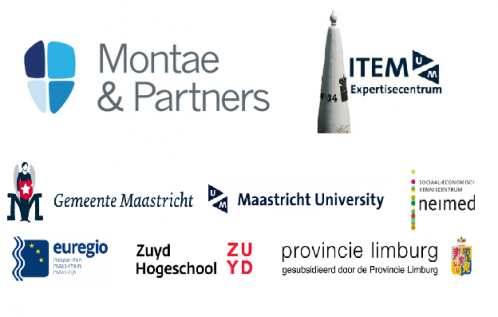 |
| ITEM-Montae Pension Expert Session - 'The Future Pensions Act and Q&As: further interpretation for (tax) practice?' |
The expertise centre ITEM, in cooperation with Montae & Partners, is organising the second edition of a (digital) pension expert webinar series on Monday 3 July 2023. The topic of the second webinar is: 'The Future Pensions Act and Q&As: further interpretation for (tax) practice?' Now that the Senate has approved the Future Pensions Act (WTP), it will enter into force on 1 July next. Simultaneously, the relevant Q&As will also be published by the Tax Administration. As a direct follow-up, in this webinar we will take a closer look at these Q&As and their significance for tax practice.
A wide range of tax questions will be discussed: e.g. from what moment may tax changes in favour of the employee resulting from the introduction of the WTP be applied? To what extent is pension catch-up possible under the WTP? Is a partial transition from pension scheme to WTP fiscally possible? Transitional law issues will also be discussed in more detail. Furthermore, we will give an insight into how employers deal with the WTP in practice, e.g. the choices employers make and their effects on pension accrual and costs.
Please register before 30 June and note that this event is in Dutch.
|
|
|
|
|
|
 |
| ITEM in the media and contributions |
On 27 February 2023, an overview of recent cases before the Court of Justice of the European Union, written by ITEM-researcher Susanne Sivonen and Pauline Melin, was published in the European Journal of Social Security. Read it here!
|
The ITEM Reflection on the Provincial Elections yielded attention in several media platforms, such as De Limburger, Binnenlands Bestuur, Trouw and Algemeen Dagblad.
|
An opinion of ITEM on the Provincial Elections was published in Reformatorisch Dagblad.
|
Daan Hovens and Susanne Sivonen presented their findings at the Neighbouring Languages Conference of 24 May 2023.
|
Pim Mertens presented the findings of Crossquality, how to measure the quality of cross-border cooperation, at the Interact Knowledge Fair on 23 May 2023 in Ghent.
|
Math Noortmann contributed to the recent plenary session of the Benelux Parliament on 16 June with a presentation. Read more here.
|
Find the latest publications by the ITEM team here.
|
|
|
|
|
|